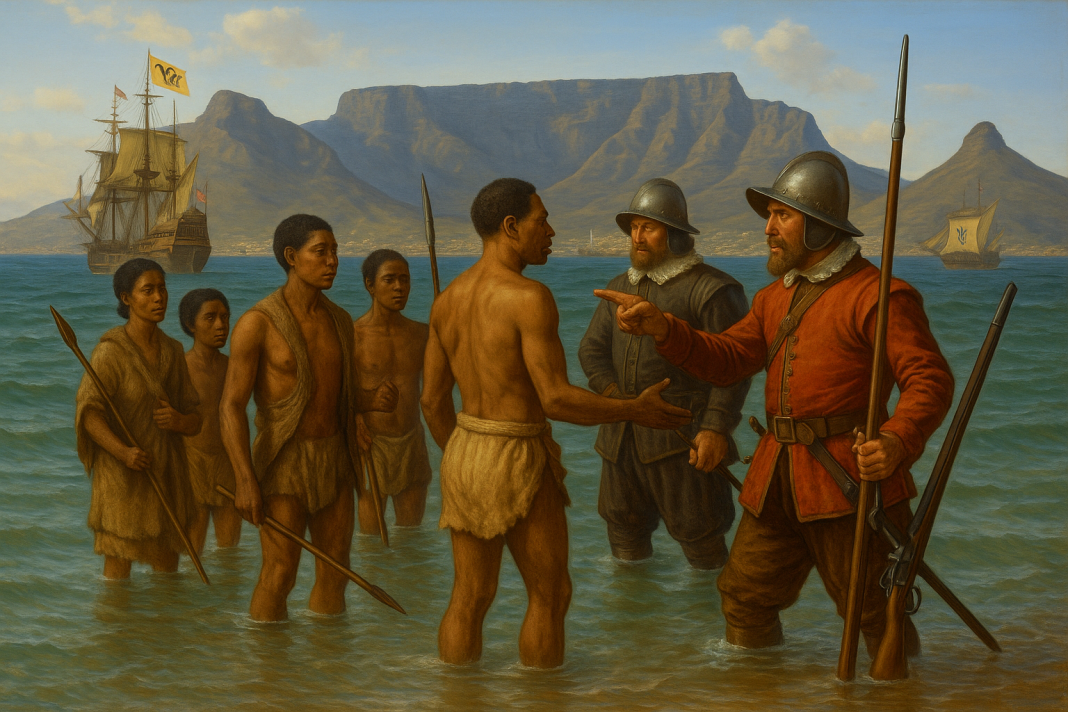Erik Green, Professor at Lund University in Sweden, investigates European colonialism and the myth of a grand strategy, setting forth the case of the Cape colony
For decades, the motivations underlying European expansion and territorial control in 19th-century Africa have been the subject of considerable scholarly debate. While some scholars argue that these efforts were primarily political in nature, others emphasise economic drivers (see sources). A common thread in much of this literature is the portrayal of colonialism as part of a coherent, overarching strategy.
In retrospect, particularly given the rapid and near-total colonisation of Africa by European powers within a short timeframe, this interpretation may seem persuasive. However, recent contributions – such as Green (2022) and Carlos, Green, Links, and Redish (2024) – propose a more nuanced and complex understanding of the processes that led to European territorial control in Africa.
The establishment of the Cape Colony as a case study
We examine the establishment of the Cape Colony as a case study to illustrate these dynamics. It is a story of Indigenous agency, pre-colonial structures and Europeans’ limited understanding of the local context. This research forms part of the broader project, The Legacy of a Settler Colony: Quantitative Panel Studies of the Political Economy of the Cape Colony, generously funded by Riksbankens Jubileumsfond (Grant No. M20-0041, approximately €3 million).
The Dutch East India Company (VOC – Vereenigde Oostindische Compagnie) established a trading post at the Cape of Good Hope in 1652. By the early 19th century, the VOC controlled a territory roughly the size of Italy. It is crucial to recognise, however, that the VOC had not initially intended to acquire extensive territorial holdings. Nonetheless, such expansion occurred. To understand how this unfolded, we must examine the early interactions between European settlers and the Indigenous Khoe people, who had inhabited the region for about two millennia.
Conventional histories of African colonialism often begin with the formal establishment of European trading posts. However, interactions between Europeans and the Khoe date back more than 150 years before the founding of the Cape post in 1652, and it is these early encounters that help explain the mechanisms that led to its eventual creation.
Soon after the ‘discovery’ of a sea route around Africa to India, the VOC recognised the strategic value of the Cape as a provisioning stop. Over the following 150 years, approximately 2,000 ships – Dutch, British, Portuguese, and French – stopped at the Cape to resupply, primarily with meat obtained through trade with the Khoe.
Although detailed records of this trade are scarce, Raven Hart’s collection of all extant ship logs from voyages that stopped at the Cape provides valuable insights. These documents consistently reveal the difficulties VOC and other European ships experienced in securing sufficient livestock. VOC officials attributed these difficulties to what they perceived as the Khoe’s “primitive” economic understanding, which they believed hindered engagement in profitable trade.
This interpretation, however, reflected a profound misunderstanding of Khoe society and economic practices – one that the VOC was notably disinclined to explore. The Khoe were transhumant pastoralists who valued cattle not primarily for meat, but as stores of wealth.
Furthermore, the Khoe were not a monolithic group; they comprised several distinct, and at times competing, societies. Their pastoralist economies were vulnerable to environmental stressors such as drought and intergroup raiding, making them understandably cautious in trading away livestock.
Moreover, the goods offered by Europeans often failed to meet the needs or preferences of Khoe communities, further limiting trade.
Eventually, after prolonged difficulties in trading with the Khoe, VOC headquarters in the Netherlands authorised the establishment of a permanent trading post at the Cape. The official rationale was to build more reliable trading relationships with the Khoe and to secure a monopoly on local trade, particularly against French and British competitors. The VOC explicitly stated that it had no intention of expanding territorial control beyond the post, citing financial constraints.
However, the establishment of the post created new demands. The fort required a steady supply of meat to feed its personnel, and the number of ships seeking provisions continued to rise. Khoe reluctance to trade persisted, prompting the VOC – within a decade of founding the post – to permit European settlers to establish farms beyond the fort’s immediate vicinity. These settlers supplied both the fort and passing ships with meat and grain. This move marked the beginning of protracted conflict between European settlers and the Khoe, and initiated a century of territorial expansion by the VOC.
European colonialism and its legacies
This case provides important methodological and theoretical lessons to the study of European colonialism and its legacies. First, one should be careful not to confuse outcomes with intentions, that is, to rewrite history backwards. Such approaches tend to create a simplistic and not seldom linear understanding of the past. Second, the agency of the Indigenous people’s actions needs to be considered.
A chief reason why the trading post was established was that it would allow the VOC to build more sustainable relations with the Khoe, which the VOC thought was needed to boost the trade. Little did they understand the Khoe societies and economies and, therefore, did not understand that it was not necessary in the interest of the Khoe to trade.
While I have not discussed the wars between the Khoe and the Europeans that followed once Europeans were allowed to settle outside the post, it is still worth mentioning that the defeat of the Khoe, which eventually happened, was far from certain in the early colonial period. Integrating the history of the colonised, their societies, and economies is necessary to understand the evolution of what became a colonial society.
References
- Green, E. (2002) Creating the Cape Colony: The political economy of settler colonization, London: Bloomsbury Academic.
- Carlos, A, E. Green, C. Links, A Redish (accepted) Early modern globalization and the extent of Indigenous agency: Trade, commodities and ecology’, online 22 August 2024 DOI: 10.1111/ehr.13376


